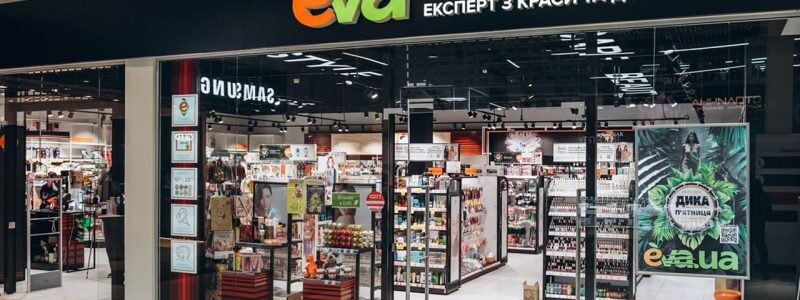
The EVA chain of stores has invested approximately UAH 100 million in improving the energy independence of its stores, logistics centers, and offices since 2022, purchasing nearly 1,200 generators and installing three rooftop solar power stations, according to the company’s press service.
The backup power system in stores is based on gasoline generators (1,133 units). The company keeps several dozen more generators in reserve to supplement the network or replace them in case of breakdowns. Uninterruptible power supplies based on EcoFlow and other similar systems are also provided. Stores located in shopping centers can obtain the necessary energy from the diesel-generating capacities of the shopping centers.
According to the press service, the share of cashless payments at EVA is over 50%, and the ability to pay for purchases by card even in the event of power outages and mobile communication interruptions is provided through fiber-optic internet. It is connected to store servers that exchange data with the company’s central server and bank POS terminals.
“In the absence of such a channel, a scheme has been implemented to work with data terminals that accumulate data and synchronize with the central server as soon as a connection is available. However, in this case, the use of loyalty program options is limited—bonuses are accrued but cannot be redeemed,” explains Viktor Sredniy, COO of the EVA store chain.
The company’s key distribution centers were provided with independent power supplies (powerful diesel generators) even before 2022. Currently, sufficient diesel fuel reserves have been made to ensure the operation of warehouses during stabilization/emergency shutdowns of the centralized power supply.
As an additional source of energy, solar power plants were installed at the company’s distribution centers in 2025: in Lviv (1,239 panels, 718 kW capacity), Dnipro (791 panels, 459 kW capacity), and Brovary (1,940 panels, 1,125 kW capacity).
According to Mykola Leonov, chief power engineer of the EVA and EVA.UA chain of stores, SES coverage ranges from 17% to 66% depending on the season and warehouse operating mode.
In connection with the expansion of the network and the increase in the company’s logistics capabilities, work continues in the direction of energy independence and energy efficiency. New stores are being equipped with generators on an ongoing basis. There are plans to install a rooftop solar power plant on a new warehouse building in Lviv and to purchase powerful diesel generators for backup power for this building and a new warehouse in Brovary. These facilities are scheduled to be commissioned in 2026.
“We are technically prepared for possible challenges. At the same time, the major risks for the business lie in the unpredictability of the scale and duration of power outages. We cannot maintain significant fuel reserves for each store, and since generators are now used by many companies across the country, simultaneous high demand could lead to a shortage of resources,” says Leonov.
Rush LLC, which operates the EVA chain, was founded in 2002. As of early 2025, the chain had 1,109 stores in operation.
According to YouControl, the owner of Rush LLC is listed as Cyprus-based Incetera Holdings Limited (100%), with Ruslana Shostak and Valeria Kiptika as the ultimate beneficiaries.
At the end of Q3 2025, Rush’s net income increased by 18.6% compared to the same period last year, to UAH 22.916 billion. Net profit decreased by 14.7% to UAH 1.7 billion.